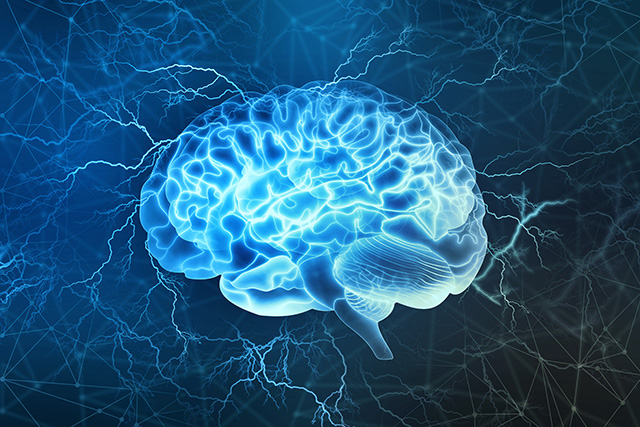
OCD - Obsessive Compulsive Disorder
What we usually see on TV about OCD
Do you remember the episodes of Friends where Monica cleans the apartment obsessively? Or Sheldon Cooper’s quirky knock in the Big Bang Theory? We’ve all seen the media’s interpretation of what OCD looks like. A lot of the time, it seems like a “funny quirk” given to a character to make them more interesting. But the reality of living with OCD can be a lot less funny than owning “bus pants”.
OCD is a type of anxiety and a debilitating mental health disorder.
People suffering from OCD are compelled to act in the way they do. Their thoughts and actions are generally accompanied by extreme anxiety. This interfers with daily life and with the things they enjoy doing. OCD is often portrayed as comical by mainstream media and many OCD sufferers feel like their symptoms are not taken seriously.
OCD is not funny or voluntary
It is hard to imagine what OCD feels like and how it can insert itself into our normal daily routines and take over. You may sometimes feel compelled to act in a certain way. Or you may stress over cleaning the house or making sure the kids wash their hands. The big difference is that when the house does not get cleaned, you stress, but you get over it. And just clean some other time.
“The most difficult phase of life is not when no one understands you; It is when you don’t understand yourself.”
- Unknown
People with OCD are consumed by intrusive thoughts and it is not possible to shrug this off and just move on. These thoughts bring about intense and uncomfortable feelings, as well as extreme levels of anxiety. This interferes with their daily lives and with activities they would usually enjoy. They become trapped in a chronic cycle of intrusive thoughts and the behaviors that follow to alleviate the anxiety caused by these thoughts.

Do I have OCD?
There is a big difference between what we think obsessive compulsive disorder looks like and and how it actually looks for people living with it on a daily basis. Often, the term OCD is often used to describe a preference or mood about something. “I’m so OCD about my shoes” for example, doesn’t necessarily refer to the actual disorder.

The truth is that being meticulous, even very particular - bordering on obsessive- about something, doesn’t automatically mean that you have OCD. You may just be a perfectionist, hygiene obsessed, or someone who really likes a clean apartment. These tendencies alone don’t mean that you have OCD. We all have days where we get caught up in certain things, but we move on.
A generally accepted starting point for diagnosis is a person who spends at least one hour a day on their obsessions and/or compulsions. Contrary to what you see on TV, they do not get any pleasure from these thoughts or actions. That means, if I love having a perfect lawn, and I sometimes spend hours grooming it in glee with my nail scissors, I don’t automatically have OCD. The difference is that I can easily control my urge to cut that lawn. And I would never cancel a date or skip a meal because of it. So, it is simply something I’m passionate or almost obsessive about.

What causes OCD?
OCD is a neurobiological disorder which means it involves the brain and the nervous system. Unfortunately, like with many other other mental health disorders, we do not yet fully understand what causes OCD. There are several possible links being researched, including genetic factors, low serotonin levels in the body, as well as environmental factors, and many more.
Patients with OCD have actually shown a difference in brain structure. In imaging studies, patients with OCD show differences in the frontal cortex, as well as the subcortical structures. What exactly this means is not clear yet, but it is an interesting discovery. We have talked before about how people suffering from depression also display changes in brain structure. There could definitely be a link between mental health disorders and physical changes in the brain.

Serotonin could also be a factor in obsessive compulsive disorder. Serotonin is a chemical in the body that sends signals between nerve cells. It also plays a part in depression and anxiety disorders in general, as well as in mood, aggression, and impulse control in the body. It is possible that when the body does not produce enough serotonin, OCD symptoms may surface.
Another possible link may exist between childhood trauma and OCD. There are some studies available that indicate this connection, but more research has to be done to understand this better. It is also possible that certain childhood infections, like streptococcal infection, increase the chance of developing OCD.

Understanding OCD
OCD is usually made up of two components: obsessions, which are intrusive thoughts. And compulsions, which are actions that need to be performed to relieve the anxiety or fears. Most often, a person diagnosed with OCD, spends a significant part of their day on obsessive thoughts, and a significant part of their day performing compulsions. They might feel that they have no control over these thoughts and actions. And they interfere with all aspects of their lives, like school, work and social relationships.

Symptoms
Obsessions
A person may have repeated thoughts, mental images or urges that seem to come without their control and cause them anxiety and distress. These can include:
Compulsions
A physical action that a person feels compelled to do in order to relieve the anxiety or fear caused by certain obsessions. These can include:
Tics
Sometimes, people with obsessive compulsive disorder also have “tics”. Motor tics are sudden, quick movements. They are often repetitive, like head twitching, eye blinking or shoulder shrugging. Vocal tics can be certain repetitive sounds someone makes. Or things like throat clearing, sniffing, or coughing.

OCD Components
Although OCD may present differently for different people, there are generally three components that exist for everyone.
Trigger
The trigger can be a place, a person, or an object that seems to trigger the intrusive thoughts, the anxiety, and even the behaviors that follow. If someone is distressed about dying in a train wreck, watching the news on TV about a train accident can trigger the intrusive thoughts and the anxiety. Or if they are worried about contamination, they may worry about the food they are about to eat.

Avoidance
Knowing that certain triggers exist, many people suffering from OCD will try to avoid these triggers. This could include avoiding visiting a certain place that triggers them. Or avoiding certain people, situations, or objects that trigger them. It could also include avoiding certain patterns, like numbers or letters, that trigger them.
Reassurance
People suffering from OCD will often look to their loved ones or the Internet for reassurance that their fears have not become a reality. They may check in with people very frequently if they worry something could have happened to them. Or they may watch the news for accidents or crimes, depending on what their fears are.

Are people with OCD unaware of it?
One popular myth about OCD is that the person suffering from the disorder is completely unaware that their behaviour is different or excessive compared to other people. This is usually not the case. Part of what makes this disorder so agonizing to people who suffer from OCD is that they are fully aware of the relationship between their obsessions and their compulsions.

Not being able to control or avoid these thoughts and actions despite being aware of how irrational they are can be part of what causes such great anxiety, shame and fear for the person. Some sufferers may even feel as though they are going crazy. Like their own brain is lying to them and forcing them to have unwanted thoughts, and do unwanted things. This can bring on even more anxiety and stress.

Living with OCD
All anxiety disorders are distressing and can have a detrimental effect on your life. But OCD specifically, can occupy so much of a person’s life that there is barely anything else left. Sometimes a person may feel a lot of confusion or shame about their symptoms. This may lead them to be secretive about the extent of their symptoms. Like with any other medical condition, there is no shame at all in getting help.
The World Health Organization ranked obsessive compulsive disorder in the top ten most disabling illnesses of any kind for a reason. OCD can affect every aspect of a person’s life, including their personal relationships, their health, their work environment, their finances, and their quality of life. Some people sustain physical injuries because of OCD and some try to self-medicate with alcohol or drugs to alleviate their symptoms.

This can also be extremely difficult for families trying to help a loved one with OCD. They may not understand OCD very well and in turn cannot help them and may not refer them to a healthcare professional. Families and friends may also become overwhelmed by trying to fulfill the various requests and behaviors for a loved one with obsessive compulsive disorder, which may lead to an eventual end of the relationship.
If you suspect that you, or someone else has OCD, talk to a healthcare or mental health professional to get help. OCD can even develop at an early age, so it is important to take symptoms seriously, even in infants. There are several ways that a person with obsessive compulsive disorder can be helped, including talk therapy, medication and other therapies, so don’t be afraid to reach out for help.

The Takeaway
The most difficult part can be telling someone about what has been happening. Since the media makes OCD look funny or entertaining, it can often be extremely difficult for someone with OCD to seek help. They may feel very ashamed that they cannot control themselves. Or even angry at their bodies for betraying them. They may feel confused or helpless and completely overwhelmed by what is going on.

The good news is that most people suffering from OCD can be treated successfully. Often, medication and psychotherapy alleviate OCD symptoms and a person can go on to have a normal life. Especially after suffering for years and possibly even in secret, finding relief from OCD symptoms can be a life-changing experience.
That’s why it is so important to seek help and for family members who are trying to support a loved one with OCD, to refer them to a mental health professional.
Everyone I know has their own burden to carry. Some people struggle with trauma they have experienced. Others suffer from mental health illnesses and feel like they are losing themselves and their lives. Some experience anxiety or are exhausted and overwhelmed. And others get diagnosed with a serious or terminal illness and have to navigate life from this new perspective.
All these situations are equally valid and everyone deserves support and help with what is affecting them in their lives. No matter how big or small. Because we all deserve to live the best life we can.
So, I hope you feel empowered to ask for help when you need it because your life is waiting to be lived fully!
Sources
https://www.nimh.nih.gov/health/topics/obsessive-compulsive-disorder-ocd/index.shtml
https://www.anxietycanada.com/disorders/obsessive-compulsive-disorder/
https://iocdf.org/about-ocd/
https://www.ocduk.org/ocd/
